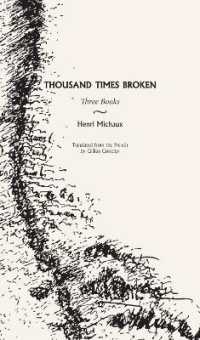- ホーム
- > 洋書
- > 英文書
- > Nature / Ecology
Full Description
Local participation is increasingly seen as a central and ethical part of environmental research. As such, many environmental efforts are becoming increasingly participatory. Participation, as a string of literature has shown, has many political, economic, social, and epistemic consequences, and ethics is fluid, polyvalent, and contextual. 'Right is right, wrong is wrong' is dangerous rhetoric that centres western experiences and forecloses the myriad realities and relations bundled within and forced upon marginalised experiences. Both participation and ethics - as concepts and praxis - cast decades-long shadows over field research (particularly in anthropology), yet much of these discussions are left at the threshold of interdisciplinary spaces, where participation, traditional and Indigenous knowledge, and co-production are brought in to sanitise and legitimise environmental actions. Where are our lessons learned and what ought we to make of their absence? The first half of this volume offers ethnographic examples that allow us to begin to ask whether participation (in the capitalist machinery and colonial legacies of academic knowledge) is ever even ethical. The second half of the book is dedicated to anti-solutions: refusals to define problems and approaches in fixed, closed terms from which equations, calculations, and solutions can be derived.
This book provokes important new discussions about ethical participation in environmental field research by bringing to the fore the fluid nature of both ethics and participation. The volume aims to provide critical intervention for students and researchers across natural and social sciences whose fieldwork includes engagement with local communities and stakeholders, as well as conservation policymakers and practitioners who consult and work with local communities.
Contents
PART I Anthropological perspectives on environmental fieldwork ethics 1 The disappearance of anthropology in participatory debates: The politics and poetics of deceleration, motion, knowledge, and labour; 2 How and what we observe: A brief introduction to theoretical perspectives in environmental social sciences; PART II Ethnographic instances: Thick descriptions of the ethical issues 3 Ethnographic instances: Ethnographic writing and the place of colonial knowledge; 4 When all our friends have gone away: On intention, abandonment, and attending to the assumptions of environmental fieldwork; 5 We don't trust you: On the interior lives of communities and collaborators in environmental research; 6 Data sharing in environmental science: Making unlikely violences visible; 7 Collaborations over wolf recovery: Conservation in Maremma, central Italy; PART III Workshopping the problem: Interviews with environmental anthropologists and interdisciplinary scholars 8 Textual workshopping: The anti-product, unfixing, and rejection of 'best-practice' in participatory environmental research; 9 'Who owns these orangutans?' And other feral questions: A conversation with Liana Chua; 10 Interdisciplinarity, betrayal, and the ethics and purpose of (environmental) research: A conversation with Paige West; 11 Working within: On attention, power, and play in environmental fieldwork - A conversation with Vanessa Agard-Jones; 12 Distance, conflict of interest, and sacrifice in environmental fieldwork: An interview with Sahil Nijhawan; 13 We have so much to work with: The potential and failure of partnerships in the living forest - A conversation with Manoel Profeta Melo dos Santos; 14 There is, in fact, a procedure: Creating legacies in collaborative field research - A conversation with Briggy; 15 Concluding discussion: Ending with the anti-solution








